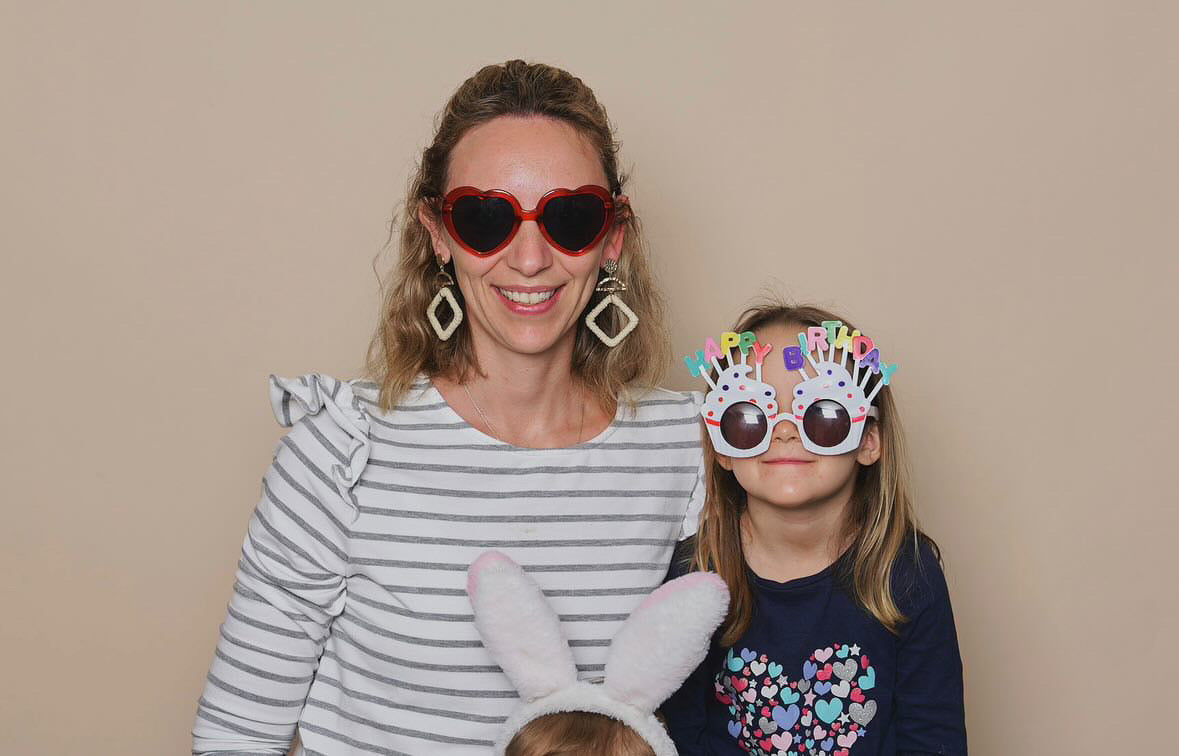When I was pregnant with my first child, I pictured us having fluent conversations in German, doing fun learning activities and her talking to my family in Germany switching between languages with an ease non-bilingual speakers would never understand. But in reality, raising children bilingual is much more challenging than I’d imagined it to be.
Most families I’ve talked to use the one person-one language model, which means, that if the father speaks one language and the mother speaks another, then every parent speaks their language with the child. This model can be extended by, for example, grandparents who speak a third or fourth language. Although this model is pretty straight forward I found it doesn’t work for us. My husband speaks English and I speak German and English, but if each of us spoke only their own language then my husband would never understand what I say which makes having a conversation where everyone is involved difficult. But that doesn’t mean that I never speak German with my children. Since I am staying home with the children for most of the time, I exclusively speak German while my husband is at work and if we’re all together in a room I speak English.
It has been a long and hard journey so far with lots of ups and downs. When my eldest daughter was little she used a lot of German words but as soon as she started daycare twice a week at the age of one, she realised that everyone around her speaks English so she focused on speaking English and over the years she spoke less and less German. But I didn’t give up and there are lots of things you can do to expose your child to your language:
• Read books in your language
• Listen to music, sing kid’s songs and learn finger plays in your language
• Watch movies in your language
• Make friends with other families that speak your language or FaceTime with family members
I have never made it a chore or treated it like a subject she needs to learn, I always wanted to make it fun and natural without putting pressure on her. Was I frustrated when she still couldn’t speak German at the age of 4? I most certainly was. But I want to stress the importance of persistence, I promise it will pay off in the end. The turning point for us came when family came to visit when she was 4 years old. My mum doesn’t speak English so there was only one way to communicate with her and that was to speak German. It took a little while for my child to build up the confidence but after 2 weeks she was saying full sentences in German. The grammar isn’t always correct and she also has a thick Australian accent, but she’s trying and that fills me with so much joy. A year later, we went on holidays to Germany and her German improved even more and now she’s voluntarily speaking German with me every day.
Get your partner on board and ask people to not correct your child if they say something in their second language the person doesn’t understand. For example, if my child asked for ‘Honig’ on her toast, my husband would say “what’s ‘Honig’? It’s honey.” Well, that makes the child think they said something wrong. So instead of correcting they could say “Yes, I can put honey on your toast” or “Can you show me what ‘Honig’ is?” It really is a learning process for everyone involved, not only the child.
If you’re still contemplating if you should raise your child bilingual or multilingual then consider the following benefits of multilingualism and bilingualism:
• Studies show that being bilingual has positive effects on brain development.
• Bilingualism results in higher academic success.
• Speaking multiple languages is highly valued in most workplaces.
• Speaking more than one language makes people more open-minded as they’re used to constant change.
• Knowing a second language makes it easier to learn a third language because those skills can be transferred.
• More than half the world speaks more than one language every day.







